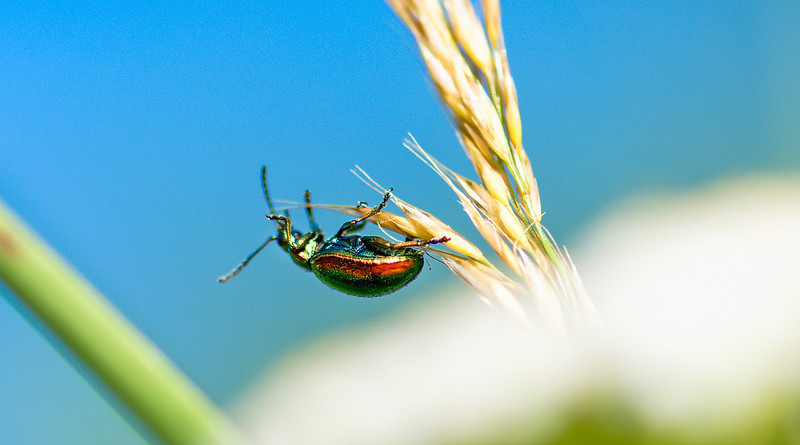Solving Global Challenges Using Insect Research
To achieve food security, to promote peace, to ensure access to quality education and clean water and sanitation, to improve health, to take action to combat climate change, to restore ecosystems and to reduce inequalities: these are some of the 17 SDG identified by the UN to address the global challenges faced by societies.
Research can be used to achieve these interrelated goals, by not only producing reliable knowledge and data, offering innovative solutions and assessing progress but also in providing some perspective on SDGs.
“We have brought together researchers from many different countries – Germany, Australia, Burkina Faso, Brazil, China, Columbia, Ecuador, the United States, India, Panama, the Netherlands, the Philippines, Thailand and Vietnam – to present original insect research that falls within the area of Sustainability science”, emphasised Olivier Dangles (IRD) and Verónica Crespo-Pérez (Pontifical Catholic University of Ecuador, PUCE), coordinators of the special issue published in Current Opinion In Insect Science. “These examples show that research on insects has great potential in tackling today’s challenges”.
* An overview of games for entomological literacy: the article considers the use of video games in improving the dissemination of knowledge about major insect-related challenges (pollinator decline, managing vectors of disease).
* Insect vectors endosymbionts as solutions against diseases: The authors of this article present new strategies to combat viral diseases transmitted by mosquitoes, in particular a strategy based on the symbiotic bacteria Wolbachia, and how mosquitoes themselves can help us to control the diseases they transmit.
* Orienting insecticide research in the tropics: Using a bibliometric analysis of insecticides, the researchers identify the research topics (bioinsecticides and integrated pest management) that should be promoted to ensure the protection of sustainable crops.
* Insect-inspired architecture to build sustainable cities: Entomologists describe the functional principles of insect structures, which may inspire the construction of more sustainable cities (particularly in terms of multifunctionality, energy saving and sustainability).
* Insects for peace: In countries recovering from conflict, agricultural development should focus on restoring food production by smallholder farmers and improving their socioeconomic position. The authors of the article describe the example of the reintegration of ex-combatants of the Revolutionary Armed Forces of Columbia as insect producers for livestock farming.
* Moving beyond the distinction between the bright and dark sides of termites: Termites are amongst the main decomposers of matter in tropical ecosystems and have a positive impact on many services for humankind. These insects also act as pests, threatening agriculture and constructions. This article assesses the impact of termites on several sustainable development goals and proposes a reconciliation between the termite’s dark and bright sides.
* The importance of insects on land and in water: The authors of this article advocate for increased knowledge of the role played by insects in tropical terrestrial and aquatic ecosystems, whose diversity and distribution are affected by global changes.
* Unsung heroes: fixing multifaceted sustainability challenges through insect biological control. In this article, researchers explain how biological control contributes to food security, poverty alleviation, human well-being and environmental preservation.

